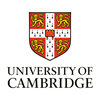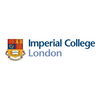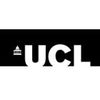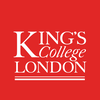
Study In UK
The higher education system in the United Kingdom is well-known for providing a wide range of graduate and post-graduate program options in addition to a demanding and innovative course curriculum.
With a robust student community of over 400,000 non-EU international students, the cosmopolitan nation is extremely well-liked among international students. Additionally, the UK is home to a number of highly regarded universities, 18 of which are listed among the top 200 in the world.
Finally, the UK government has announced the creation of a post-study work visa, which permits overseas students to remain and work for an additional two years following the end of their degree.
Here are some reasons
to study in the UK:
Depending on the subject and the university you apply to, the cost of studying in the UK might vary, however the average annual tuition for overseas students in the UK is between 15 and 35 lakhs. The few exceptions are prestigious universities like Cambridge and Oxford.
| Programs | Months |
|---|---|
| Undergraduate | 20-25 lakhs per year |
| Masters | 15-30 lakhs per year |
| MBA | 17-40 lakhs per year |
A list of some of the most reasonably priced prestigious universities in the UK is provided below:
- Bedfordshire University
- Chester University
- Leeds Beckett University
- Western University of London
- Stirling University
In the UK, as opposed to the US, a three-year bachelor's degree is recognized and accepted as such. Furthermore, there are no prerequisites for studying in the UK, with the exception of the top 5-7 MBA programs, for test results like the SAT, GRE, and GMAT. The qualifying requirements for Indian students to study in the UK are listed below:
| 1. | Bachelors Degree | 3-year bachelor’s degree from a recognised Indian university |
| 2. | Test Scores | TOEFL/IELTS GMAT (only for the top 7 universities in UK) |
| 3. | Work Experience | Minimum of 2-3 years of work experience for MBA programs Option for freshers are also available |
| 4. | Essays | 1-2 long essays during application |
| 5 | CV | |
| 6. | Letter of Recommendation | 2 LORs |
Along with a full application that includes two passport-sized photos, a CV, transcripts, certifications, SOPs, LORs, and student visa information.
Without an IELTS score, students can still apply to a number of UK universities as long as they meet the other prerequisites. Indian students who wish to study in the UK without taking the IELTS may need to complete an English language program in addition to their regular coursework, provide evidence that they have taken more than 75% of their high school coursework in English, or simply apply for an English Language Proficiency Waiver, which is essentially a letter certifying that the student's previous university used English as the language of instruction. Depending on the college or university you apply to, these requirements change.
The list of UK institutions that accept most Indian students without an IELTS score or other prerequisites is shown below:
- Aston University
- Audencia Nantes School of Management
- Bangor University
- Bath Spa University
- Bedfordshire University
- Birmingham City University
- Brunel University
- Chester University
- Coventry University
- Cardiff Metropolitan University
- De Montfort University
- Hertfordshire University
- London South Bank University
- London Metropolitan University
- Middlesex University
- Oxford Brookes University
- Riga Technical University
- Sheffield Hallam University
- Swansea University
- Sunderland University
- UCLAN
- University of Essex
- University of Central Lancashire
- University of Greenwich
- University of Northampton
- University of Plymouth Portsmouth
- University Northumbria
- University Robert Gordon
- University of Bolton
- University of Bristol
- University of Law
- University of Geneva
- University of Basel
In the UK, there are two main intakes of international students:
| February Intake |
| September Intake |
Full-time degree-seeking students are granted a student visa that permits them to work for one or more organizations and for a maximum of 20 hours per week during their term, whether the job is paid or unpaid.
Indian students are eligible to apply for merit-based scholarships, which are primarily offered by UK universities.
UK student visas can be divided into the following categories based on the length of time it takes to obtain one:
(a)Extreme Priority - Issued less than a week following the student's visa application
(b)Prioritization - Released one to two weeks following the student's visa application
(c)Standard Visa - Issued three weeks following the student's visa application.
Get A Free Registration!
Top Ranked Universities in UK

University of Oxford

University of Cambridge

Imperial College London

UCL (University College London)

The University of Edinburgh

King's College London, University of London





Lorem ipsum dolor sit ametconse ctetur adipisicing elitvolup tatem error sit qui dolorem facilis.